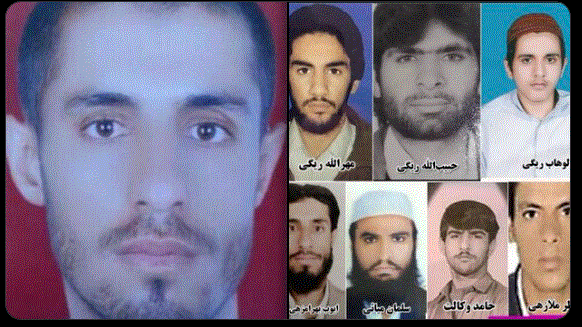Indian State Should Focus on Unconventional Methods: Jamal Nasir Baloch
October 26: A Day Engraved in the Baloch Calendar

Every nation has pivotal moments that shape its identity and collective memory. For Balochistan and its people, October 26 stands as a sombre reminder of the brutality faced at the hands of oppressive Iranian forces. This date marks the tragic events of October 26, 2013, when 16 young Baloch men were executed in a chilling act of retribution by Iranian authorities.
On that fateful night, in a shocking violation of international norms, the Iranian government executed these youths without prior notice or any opportunity for them to say goodbye to their families. The events leading up to this atrocity were steeped in conflict. Just a day earlier, an attack by the militant group Jaish al-Adl had resulted in the deaths of at least 14 Iranian soldiers in Iranian-occupied Balochistan. In a vengeful response, the Iranian regime turned its anger on imprisoned Baloch individuals, punishing innocents for the actions of militants.
According to reports from within the Iranian administration, these young men suffered severe torture prior to their executions. Eyewitness accounts reveal that they were not only subjected to physical abuse but were also executed in a horrific manner, with reports of knife attacks. The brutal nature of their execution raises a crucial question: why were the bodies of these youths not returned to their families for burial?
International law mandates that condemned prisoners should have the right to meet their families before execution and that their remains be returned for proper funerary rites. The Iranian authorities’ refusal to return the bodies clearly indicates an attempt to conceal the torture these individuals endured. Instead of facilitating closure for grieving families, they presented empty graves, claiming, “This is where your children are buried.”
Families were left in the dark until they learned through state media about the execution of 16 individuals. The reality hit them only when the names were made public, revealing that their loved ones were among the victims. The executed included: Nazer Malazahi, Mehrallah Rigi Mahernia, Abdul Wahab Rigi, Habibullah Rigi Nejad Shorki, Saeed Naroui, Hamed Vekalat, Salman Meyai, Ayoub Bahramzahi, Azam Gorgij, Daud Mir Balochzahi, Hassan Rezaei, Habib Tutazahi, Nasser Shahbakhsh, Ahmad Dahmarde, Hossein Barahoui, Najibullah Bahadari
Mohammad Marziyeh, the Iranian state prosecutor in Zahedan, characterised the executions as a “decisive response” to the earlier attack, framing it as a necessary measure against what he described as terrorism.
Disturbingly, several of the executed individuals were imprisoned for drug-related offences, while others faced political charges. Among them, Habibullah Rigi Shorki was serving an eleven-year prison term, and Salman Meyai had been sentenced to prison and exiled to Khorramabad. This raises serious questions about the legality and ethics of their execution.
The narrative surrounding these events highlights a broader issue of oppression faced by the Baloch people. The execution of these youths is not merely an isolated incident but part of a systemic pattern of violence, continuous executions and discrimination against the Baloch nation by Iran. As the Baloch nation commemorates October 26, it serves as a powerful reminder of the need for justice, accountability, and recognition of human rights.
In remembering this tragic day, the Baloch people honour the memory of those lost and continue to seek justice for the atrocities committed against them. October 26 is not just a date on the calendar; it is a testament to the resilience of a people determined to resist oppression and advocate for justice, democracy and freedom.









